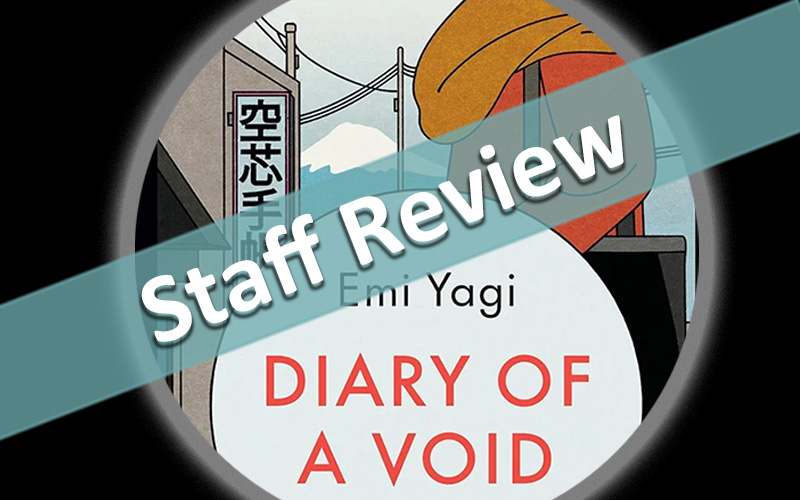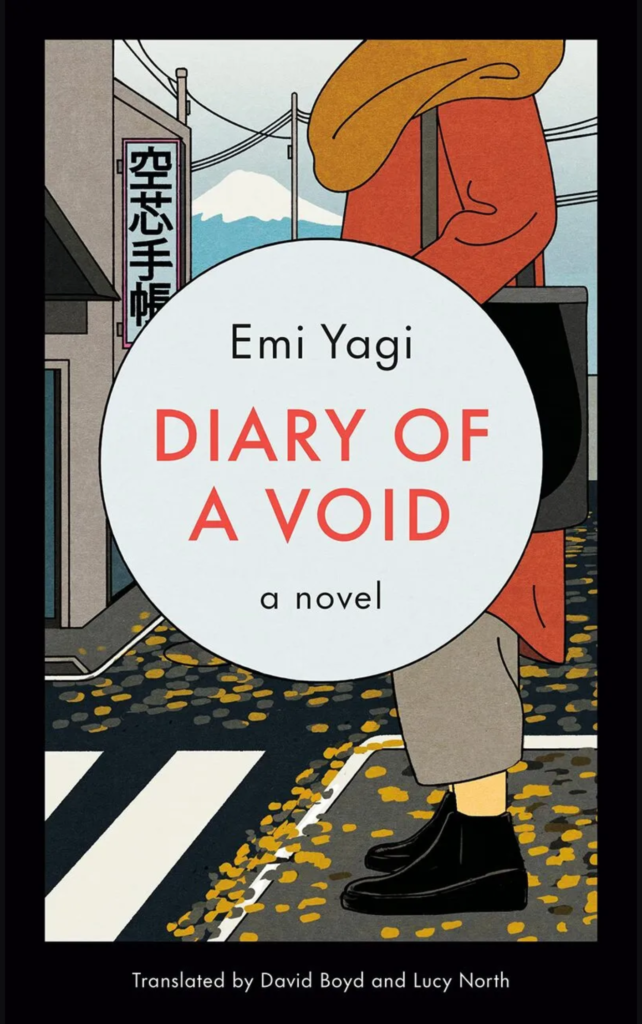Diary of a Void Staff Review By Sarah Smith, Adult Services Librarian
After I finished reading “Diary of a Void” by Emi Yagi, I really wanted to talk with someone else who had also read it. It’s such a wonderfully weird book that defied my expectations as a reader. Unfortunately, no one I know has had a chance to read it yet, so I’ve been left mulling over the ethics of lies by myself. Fortunately, if you decide to read this book after reading this review and you too are left with questions, you know where to find me to have a chat!
Lies are at the heart of this story. Most people accept some amount of dishonesty as a necessary part of social interactions. Social lies like “I’m fine!” when asked how you are, even though you are stressed to the max. White lies like “Oh, I already ate, sorry!” when your relative who always mixes up the sugar and the salt offers you a cookie. Lies of omission where you avoid saying something to protect someone else or yourself. Sometimes it’s kinder or easier to lie. But where exactly we draw the line for an acceptable lie is harder to define.
“Diary of a Void” starts with the narrator, Shibata, telling a lie that definitely crosses the line. She tells her colleagues that she’s pregnant when she is absolutely not pregnant. That said, her lie comes from a very understandable place of frustration. Shibata is a new employee at a fairly traditional Japanese company, and as the only woman in her department, there is an expectation that she will handle certain tasks. Tasks such as distributing the office mail, tidying the break room kitchen, and cleaning up after department meetings. All of this is on top of the usual expectations and stress of Japanese work culture, which can be so stressful that there’s a word for people who die from overwork: Karoshi.
One day, Shibata is asked to clear away the mess of another meeting. The half-full drinks with cigarette butts floating in them are so disgusting that instead she simply states that she can’t. That the smell is making her ill because she’s pregnant. It’s an unplanned lie, but it’s effective in making her life at work better so Shibata maintains the lie. Despite the fact that as an unmarried woman, she faces a different sort of societal disapproval for her choice. It is clear to Shibata that the benefits of her “pregnancy” outweigh the negatives of any gossip.
The novel’s title is sort of a pun based around a type of pregnancy journal women often keep in Japan. Shibata uses this journal instead to help keep her from getting caught in her lie by nosy coworkers. Because the other thing we all know is that lies have a tendency to grow beyond your control the longer you try to maintain one. Of course, Shibata’s lie comes with a built-in end date of nine months. That added tension made it difficult to pull myself away from the pages until I reached the conclusion alongside Shibata.
Read more Staff Reviews


